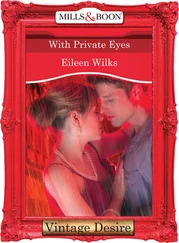Milo said, “Parole’s usually three years. How come he did six?”
“Part of a deal. After he got out of Quentin, he asked to leave the state. The Department said okay if he could obtain structured placement and double his time. He found some sort of Indian reservation- out in Arizona, I think. Did three years there, then moved somewhere else, another state- I don’t recall exactly- and did three there.”
“Why the move?” I said.
“From what I recall,” he said, “the first place was funded by a grant that got canceled, so he had to move on. The second place was Catholic- I guess he figured unless the Pope canceled, he’d be okay.”
“Why the move to L.A.?”
“I asked him about that and he didn’t have much of an answer- not one that made sense, anyway. Something about original sin, a lot of mumbo-jumbo about salvation. Basically what I think he was getting at was that he’d sinned here- against your missing lady- so he had to be a good boy here to even the score with the Almighty. I didn’t push him on it- like I said, he wasn’t even obligated to show up. It was a formality.”
“Any idea what he did with his time?” said Milo.
“Far as I know he was over at that mission, full time. Cleaning toilets and washing dishes.”
“Eternal Hope.”
“Yeah, that’s the one. Found himself another Catholic place. From what I could tell, he never left his room, never consorted with known felons or used dope. The priest confirmed it over the phone. If I’da had sixty-three like him, my job would have been a breeze.”
“Did he ever talk about his crime?” I said.
“I talked to him about it- first time he came in. Read from his sentencing report, the judge calling him a monster and all that. I liked to do that with all of them at the outset. Establish some ground rules, let them know I knew who I was dealing with, eliminate a lot of nonsense. Most of them leave stir still claiming they’re innocent as Baby Jesus. You try to break through that delusion, get some insight going, if there’s gonna be any hope. Like doing psychoanalysis, right?”
I nodded.
“Did McCloskey develop any insight?” said Milo.
“Didn’t need to. He came in breathing guilt, told me straight out he was worthless and didn’t deserve to live. I told him that was probably true, then read the sentencing report out loud to him. He just sat there and took it- like it was some kind of medical treatment that was for his own good. About as close to a walking dead man as I’d ever seen. After a couple of times with him I found myself actually getting sorry for him- the way you feel sorry for a dog that’s been hit by a car. And that’s something that doesn’t come easy to me. I’ve worked a long time fighting my sympathies.”
“He ever say why he burned her?” said Milo.
“Nope,” said Bayliss. “And I asked him about that, too. Because his file said he’d never owned up to any motive. But he didn’t have much to say- kind of mumbled and wouldn’t get into that.”
A scratch of the goatee. Bayliss removed his glasses, wiped them with a handkerchief, and replaced them. “I tried to work on him a bit- think I phrased it to him in terms of his duty to her, how once he’d done a crime like that, she owned him. In a spiritual sense- I was trying to appeal to his religious side. Whenever they tried the religious stuff I turned it right back on them. But it didn’t work with him- he just sat there and stared at the floor. It was all I could do to keep a conversation going for the ten minutes. And he wasn’t faking it- after twenty-five years I can tell. We’re talking nothing. Total zombie.”
“Any idea why?” I said. “What got him to that state?”
Bayliss shrugged. “You’re the psychologist.”
“Okay,” said Milo. “Thanks. Anything else?”
“Nothing. What’s the story with the lady?”
“She left her house, drove off, and hasn’t been heard from since.”
“Left when?”
“Yesterday.”
Bayliss frowned. “One day gone and they hire a P.I.?”
“It’s not your typical situation,” said Milo. “She’s been housebound for a long time. Hardly left her home.”
“How long’s a long time?”
“Since he burned her.”
“She’s been severely agoraphobic since then,” I said.
“Oh. That’s too bad.” He looked as if he meant it. “Yeah, I can see why her folks would be worried.”
We walked back outside. Bayliss looked thoughtful. He accompanied us all the way to the car.
“Hope you find her soon,” he said. “If there was something I could tell you about Joel that would help you, I would. But I doubt he has anything to do with it.”
“Why’s that?” said Milo.
“Inertia. The dead zone. He’s like a snake that got stepped on one time too many and lost its poison.”
***
I drove home on Olympic. Though his seat was pushed all the way back, Milo positioned himself with his knees drawn up. Opting for discomfort. Looking out the window.
At Roxbury, I said, “What’s up?”
He kept his eyes on the landscape. “Guys like McCloskey. Who the hell knows what’s real and what’s not? Bayliss is so sure the asshole’s run out of steam, but he admitted he barely knew him. Basically, he took McCloskey at face value because the sleaze showed up voluntarily and didn’t make waves- your typical bureaucratic response. Shit flushes through the system and as long as the pipes don’t back up, no one cares.”
“You think McCloskey bears further watching?”
“If the lady doesn’t show up real soon and no new leads develop, I’m gonna mosey on by again, try to catch him off guard. But before I do that, I’m gonna get to a phone, call in some markers, and try to find out if the scumbag’s been consorting with any known felons. You got anything planned for yourself?”
“Nothing urgent.”
“If you feel like it, take a run out to the beach. Check out the second house, just in case she’s bunked out there and not telling anyone. It’s a long drive and I don’t want to kill that much time- course I don’t think it’ll lead anywhere.”
“Sure.”
“Here’s the address,” he said.
I took the slip of paper and continued to drive.
He looked at his watch. “Might as well leave soon. While the sun’s still out. Play sleuth and work on your tan- hell, take out your boogie board and catch a wave.”
“Watson goes gnarly?”
“Something like that.”
No messages at home. I stayed long enough to give the fish a heavy feed, hoping to keep them away from the few egg clusters that remained. Then back on Sunset, heading west, by two-thirty.
Day at the beach.
I pretended it was going to be fun.
I hit Pacific Coast Highway, saw blue water and brown bodies.
Robin and I had done this drive, so many times.
Linda and I had done it once. The second time we’d been out together.
Alone was different.
I stayed away from those thoughts, paid attention to the Malibu coastline. Never the same, always inviting. Kama Sutra real estate.
Probably why people went into hock in order to get a piece of it. Living with black flies and corrosion and highway mayhem, and waxing amnesiac about the inevitable cycle of mud slides, fires, and killer storms.
Arthur Dickinson’s piece was choice. Five miles up from Point Dume, past the sprawling public beach at Zuma, and a left turn onto Broad Beach Road just past the rodeo rink at Trancas Canyon.
Western Malibu, where the tacky motels and surf shops have long disappeared, ranches and tree farms fill the landside of Pacific Coast Highway, and the dinner hour is dominated by sunsets of unlikely hue.
Читать дальше












